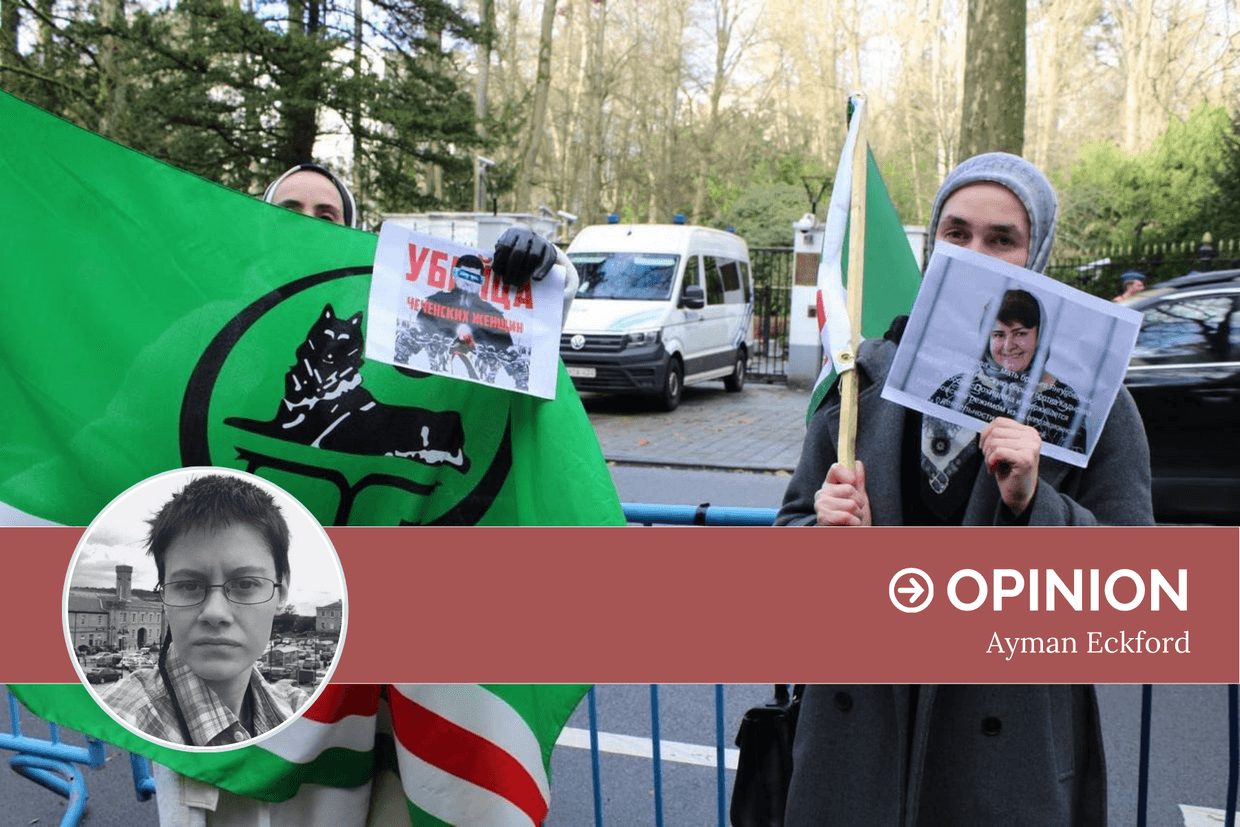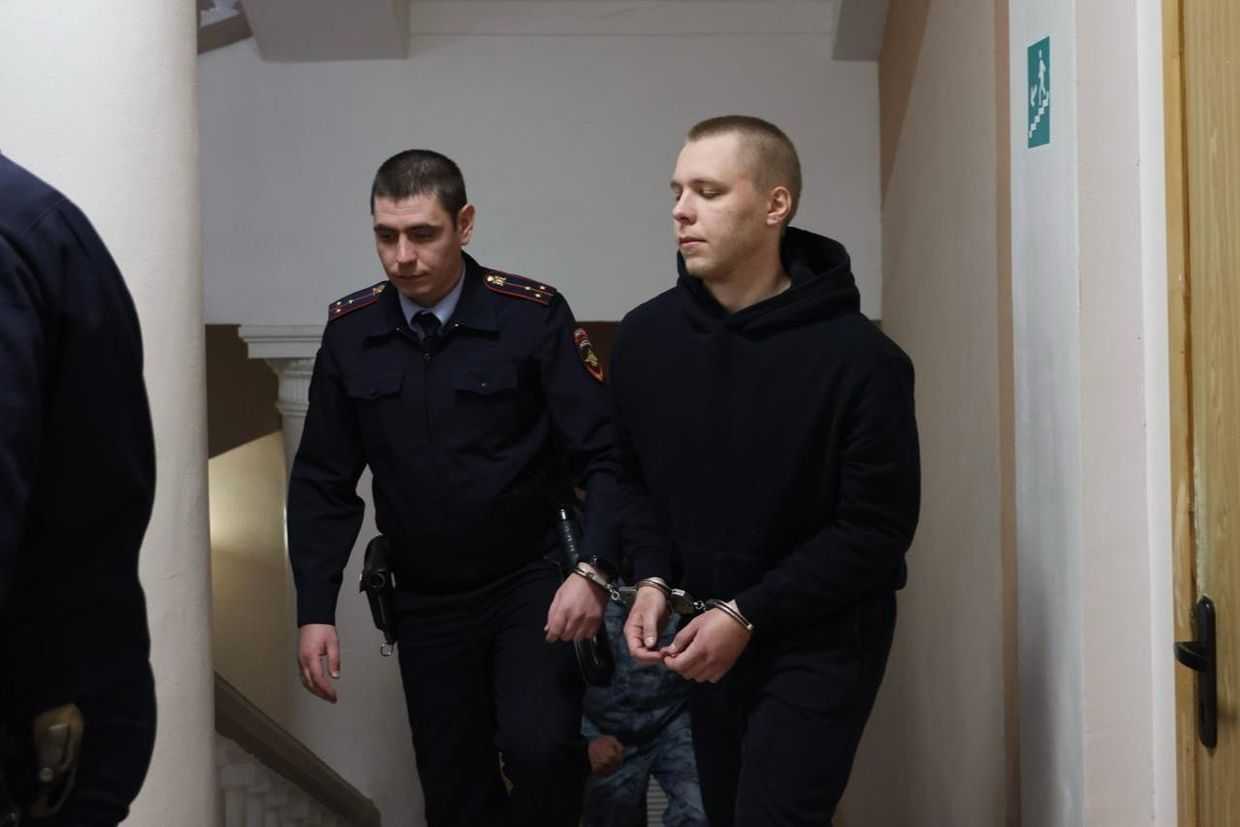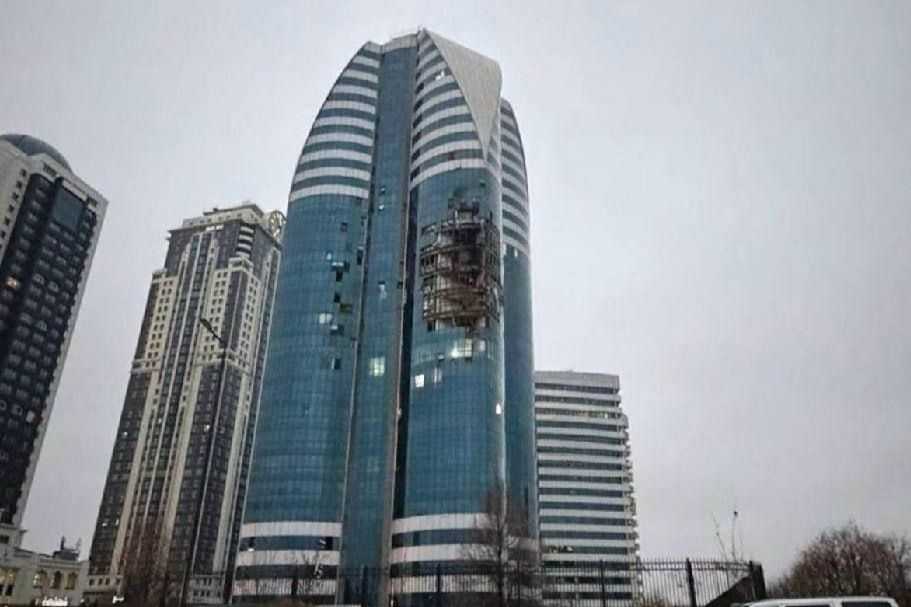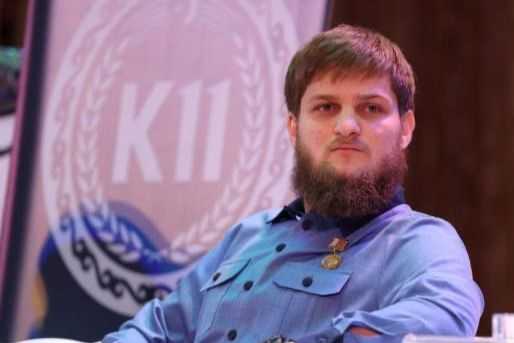
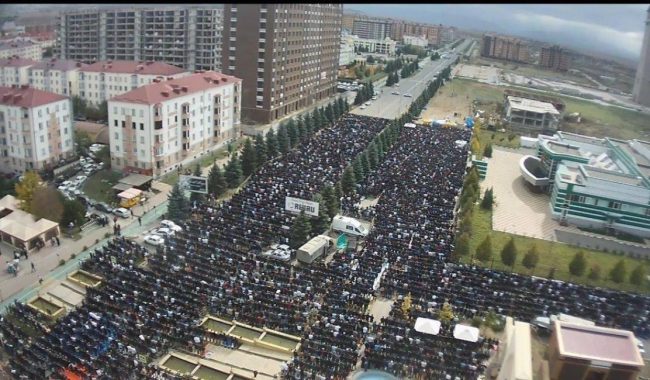
Activists in the Russian Republic of Ingushetia announced on Wednesday that protests in the capital, Magas, were to be put on hold, after the official permit for holding them expired.
Mass protests erupted in Magas on 4 October, as Ingushetia’s parliament, the People’s Assembly, approved a controversial border agreement with Chechnya.
Several MPs announced that the vote was rigged, while the Ingush Constitutional Court declared the deal unconstitutional and demanded a referendum.
On Tuesday, protest leaders walked out of a meeting with the Russian Presidential representative to the North Caucasus, Aleksandr Matovnikov. This was the second round of negotiations with the federal authorities in Pyatigorsk, a city in Stavropol Krai.
Human rights activist and one of the protest leaders, Magomed Mutsolgov wrote on his Facebook page that the Ingush delegation left after seeing the ‘disregard of federal officials to the law and the opinion of the population of Ingushetia’.
Izabella Yevloyeva, a journalist and protest activist, told OC Media that ‘from the first seconds of the meeting, the delegates of [protest] leaders understood from the behaviour and the manner of speaking of [the authorities] that there will be no compromise’.
Russian news site Fontanga quoted one of the protest delegation as saying they were told ‘the law on the borders was passed’ and ‘it doesn’t matter, with or without violations’.
‘So, the authorities recognise the violations but tells us “go to court” ’, they quoted Musa Malsagov as saying.
Bekkhan Khashagulgov, a protest activist, told OC Media that the protest leaders left the negotiations realising that it would bring no result and returned to Magas.
The rally’s last day
On Wednesday, protest organiser Akhmet Barakhoyev announced to protesters the next steps.
He said protests would temporarily pause as they were only authorised to take place until 17 October. Barakhoyev said that the protest organisers planned to organise a three-day rally from 31 October to 2 November, which had been authorised with the authorities.
He said that in the meantime, they planned to visit settlements throughout Ingushetia to inform people of the signed agreement, as mobile internet access has been blocked in the republic since protests began two weeks ago.
Later that day, once protesters had left, mobile internet was restored across Ingushetia and police left Magas’s main avenue.
According to Barakhoyev, protest leaders and MPs from the Ingushetia’s parliament had already applied to the courts to have the agreement revoked and to recognise the vote as falsified.
Barakhoyev said that protest leaders also planned to appeal to the Council of Europe, UN, and the Islamic League.
Barakhoyev also proposed holding a third nationwide dzhuma-namaz (Muslim Friday prayers) in the city square of Magas.
Pressure on protesters
One protest activist who asked not to be named told OC Media the authorities had turned off gas and electricity connections in the homes of a number of MPs in Ingushetia’s parliament, including, Beyal Yevloyev, on Wednesday night.
They also claimed activists working in state structures were facing pressure to resign.
Magomed Mugoltsov told OC Media the group was ready to provide legal assistance to those dismissed from work because of their involvement in the protest.
‘Disinformation and propaganda move’
On 14 October, the head of Ingushetia, Yunus-Bek Yevkurov, passed on a message to protest leaders that he was willing to meet with experts, public figures, and representatives of teips (clans) to find a compromise.
Ibragim Doskiyev, a judge on Ingushetia’s Constitutional Court and one of the organisers of the protest, told OC Media they agreed to meet under two conditions: the meetings should be held on ‘neutral territory’, at the headquarters of police general Sergey Bachurin, and in the presence of cameras from government channels as well as activists.
According to him, Yevkurov rejected these conditions.
On the same day, Yevkurov announced that publicly on his Instagram page that protest organisers had agreed to meet.
Two videos were attached in which Yevkurov apparently informs Russian President Vladimir Putin of the results of the negotiations with the protesters.
Human rights activist Magomed Mutsolgov called Yevkurov’s message ‘a disinformation and propaganda move’.
On Thursday, Ingush state television showed news of the meeting, supposedly with the participation of experts and representatives from Chechnya, claiming the protest organisers ‘ignored’ it.
According to protest activist Izabella Yevloyeva, the channel and the Ingush government was attempting to show that Yevkurov, unlike his opponents, was open for dialogue.
A controversial deal
On 26 September, an agreement on defining borders between the head of Chechnya, Ramzan Kadyrov, and the head of the Ingushetia, Yunus-Bek Yevkurov, was signed in Magas in the presence of the Russian president’s envoy to the North Caucasus, Aleksandr Matovnikov.
A week later, on 4 October, a Ingushetia’s People’s Assembly passed a bill approving the borders between Chechnya and Ingushetia. According to the bill, Ingushetia ceded a large part of its territory in the Sunzha District to Chechnya.
On the same day, in the morning, a protest began in Magas in support of the MPs who were ready to vote against the bill. After the secret ballot, in which the bill was approved by 17 out of 24 MPs present, several MPs went out to the streets to protest, claiming vote rigging. The rally lasted until 17 October.
Chechen authorities have openly claimed territories in eastern Ingushetia for a number of years, despite a 1993 Chechen–Ingush agreement that left most of Sunzha District within Ingushetia.
The Chechen claims, which refer to Soviet maps from the 1930s, continued even after Ingush President Murat Zyazikov and Chechen President Akhmat-Khadzhi Kadyrov (the father of the current leader, Ramzan Kadyrov) confirmed the existing borders in 2003.
Between 1936–1993, Chechnya and Ingushetia existed as the Chechen–Ingush Autonomous Soviet Socialist Republic and the border between them was not demarcated.



